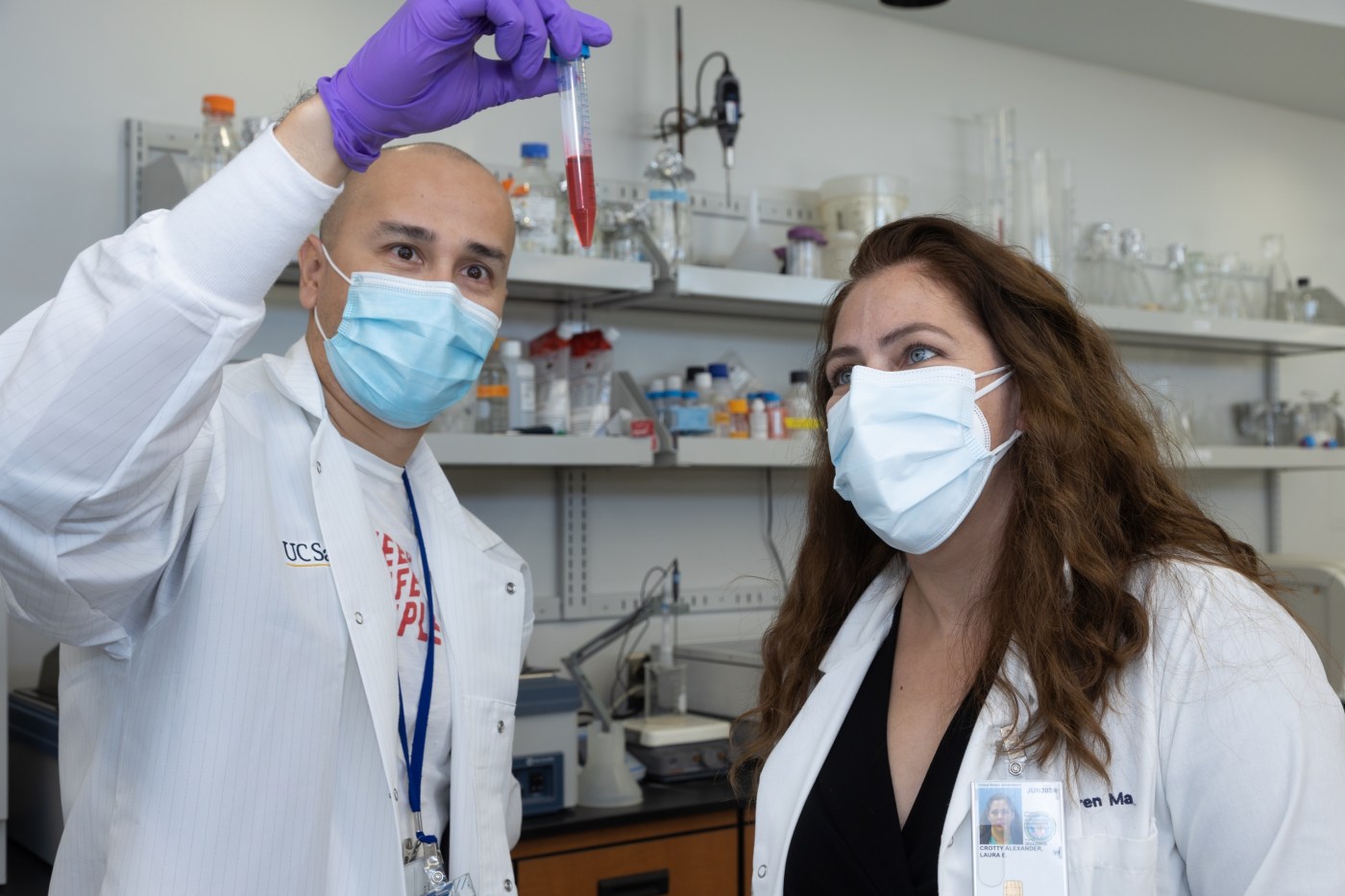As a physician with the VA San Diego Healthcare System, Dr. Laura E. Crotty Alexander has heard from more and more patients over recent years that they’re thinking of switching to vaping e-cigarettes as a safe alternative to traditional cigarettes. Not so fast, says the pulmonologist, who is also an associate professor at the University of California San Diego. She calls it a “dangerous situation,” with so many people apparently unaware that e-cigarettes come with wide-ranging dangers of their own.
While some tout e-cigarettes as a solution to quitting conventional smoking, the truth about relative risks is complicated, says Crotty Alexander, who is a researcher in addition to providing patient care and teaching. In a major recent undertaking to help clarify the effects of e-cigarettes, the physician-investigator conducted a review of the best available evidence about vaping and lung harms. She and her co-authors published their roundup of the evidence in an article titled “Vaping and Lung Inflammation and Injury,” which appeared online Feb. 10 in the journal “Annual Review of Physiology.”
As substantiated in the review, a convincing body of evidence exists that confirms e-cigarettes cause lung inflammation and injury, as well as negative health effects in multiple organs. Crotty Alexander says e-cigarettes come with far more dangers than even she expected.

The Crotty Alexander lab buys a variety of e-cigarette and vaping devices and e-liquids to parallel what the general population is using and generates aerosols from them. In the photo, the aerosol from a pod-based e-cigarette containing lab-mixed e-liquid to mimic unflavored JUUL is drawn up into a sterile syringe containing media to create e-cigarette vape extract. (Photo by Kevin Walsh)
Pressing need for accurate information
“I initially believed, in my heart of hearts, that nothing could compare to the dangers of smoking conventional tobacco. Over eight years of research, and as affirmed by this new review of the evidence, it has become clear to me that e-cigarettes cause their own set of diseases that seem to impact just about every organ in the body – from the brain to the bladder,” Crotty Alexander said.
E-cigarettes are devices that use an electric battery to heat up a liquid (commonly called an “e-liquid”) into an aerosol, which the user inhales. The popular devices – used by about 9% of people in the United States, including some 2 million middle and high school students – generally contain nicotine or THC (the psychoactive chemical in marijuana), flavorings and other chemicals dissolved in an oily liquid base. Vitamin E acetate, diacetyl, formaldehyde and acrolein are just a few among hundreds of potentially hazardous substances commonly found in e-liquids and their aerosols.
Studies on E-cigarettes have uncovered serious dangers
The dangers of traditional cigarettes – such as immensely increased risks of lung cancer, stroke and heart attack from regular smoking – are widely known. While e-cigarettes are much newer on the scene and researchers are building the evidence base, studies have already uncovered some serious dangers. Given vaping’s popularity, Crotty Alexander says “it is imperative to answer outstanding questions about e-cigarettes’ impact on the body as soon as possible, to accurately inform the public, health care providers and policymakers.”
The Annual Review of Physiology article summarizes what is known – and highlights where gaps in knowledge exist – about e-cigarettes and harm to the lungs. The review discusses the range of effects found in rigorous studies, including shorter-term acute effects and longer-lasting chronic impacts.
Crotty Alexander was invited to coauthor the work based on her specialized experience in e-cigarette research and her understanding of biological mechanisms and immunology, in particular: What is happening inside the body? How does inflammation happen? Why are cells responding the way they do? The two additional authors offered complementary specializations: Dr. David Christiani, a pulmonologist and critical care specialist at Massachusetts General Hospital, contributed research expertise about the health effects of exposure to pollutants. Dr. Jin-Ah Park, with the Harvard School of Public Health, specializes in airway biology and supplied her knowledge of disease mechanisms that impair breathing in conditions such as chronic obstructive pulmonary disease and asthma.
More Information
Click here to read the full article.
Click here to learn more about VA research.
Topics in this story
More Stories
Study underscores important role COVID vaccination can have in protecting Veterans from infection and reducing long-term health consequences
Columbia VA’s robotic surgery teams completed their 800th robotic surgery and are on schedule to hit 1,000 by the end of the year.
In a decentralized clinical trial, Veterans can participate from their own homes or local VA instead of having to travel to a research site.






